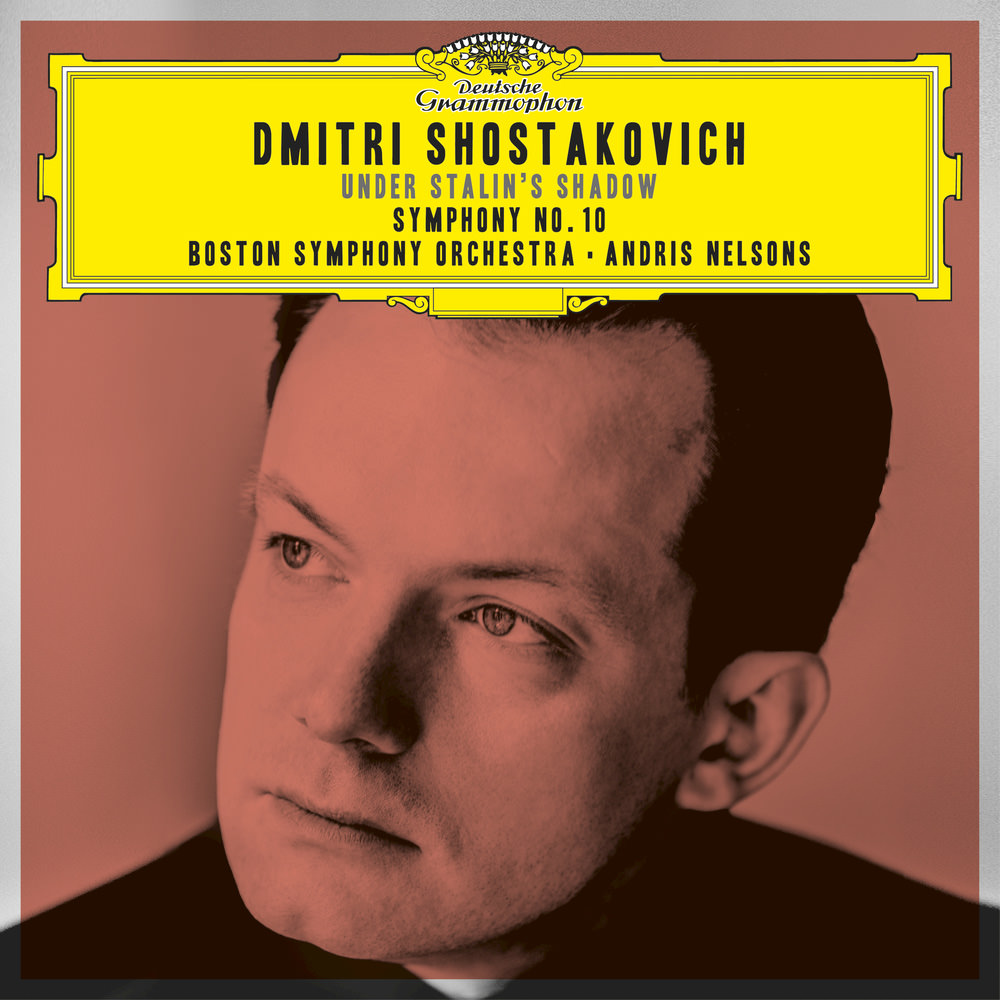Shostakovich: Under Stalin’s Shadow – Lady Macbeth Of The Mtsensk District, Op.29 / Act 2 – Passacaglia / Symphony No. 10
*2016 GRAMMY Award-winning Album – Best Orchestral Performance*
This recording marks the first instalment of a long-term collaboration with one of the most exciting young conductors of our time: Andris Nelsons the newly appointed Music Director of the Boston Symphony Orchestra.
The goal of this massive undertaking is a complete Shostakovich cycle on Deutsche Grammophon with the Boston Symphony Orchestra. The core of which – Symphonies Nos. 5-10 – is scheduled for recording and release over the next two years.
Andris Nelsons has had a long journey with Shostakovich. He is one of the last conductors of his generation who still grew up in the Russian and, more especially, the Soviet musical tradition ever since he started his training as a conductor. He studied in St Petersburg with Alexander Titov and also with Mariss Jansons. His new orchestra has had a great tradition in performing many of Shostakovich’s works in America for the first time.
The theme of the first album with Shostakovich´s 10th Symphony and Passacaglia from Lady Macbeth is a reflection on Shostakovich and Stalin. Lady Macbeth was the piece which brought criticism of his work and the radical change of style, whereas Symphony 10 is from the year Stalin died: the long arc of censorship of Shostakovich until Stalin’s death, and the composer’s response to this.
„They may not have been together long, but both Nelsons and his new orchestra have serious form when it comes to Shostakovich: he has recorded symphonies with the CBSO and Concertgebouw, among others, and Boston championed his music under Koussevitsky. This is already their second recording together, and many of the virtues which James located in their earlier disc of Sibelius are also in evidence this time round: Nelsons’s masterful grasp of the architecture of the work (particularly the epic 20-minute first movement, which almost feels like a symphony in its own right here), the slow-burn climaxes and the searing brass-playing all make their mark, but there’s something quite special going on here which transcends the technical side of things.“ (Presto Classical)
